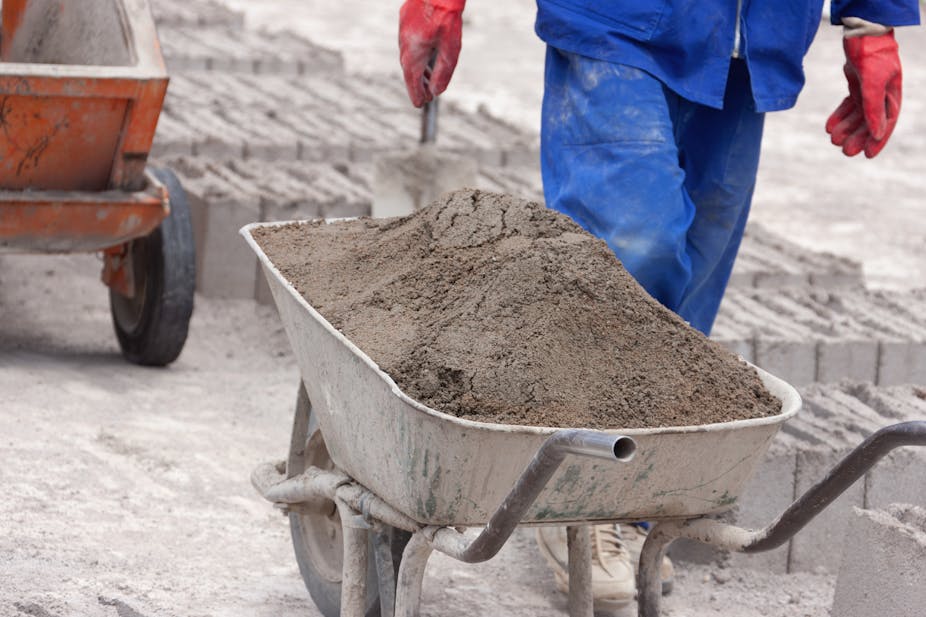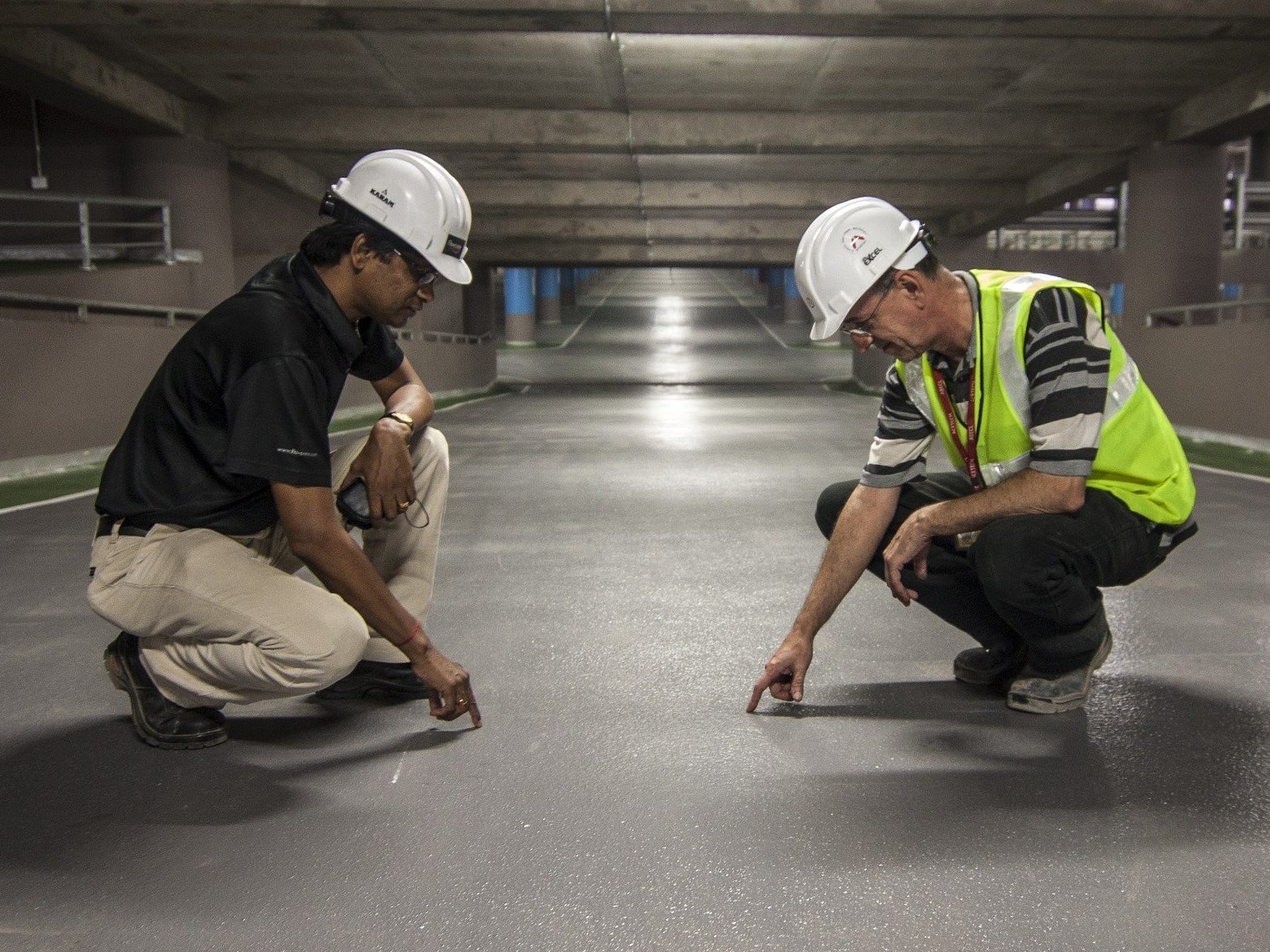A Deep Dive Into Concrete Performance: Exploring West Coast General Engineering Concrete’s Core Advantages
A Deep Dive Into Concrete Performance: Exploring West Coast General Engineering Concrete’s Core Advantages
Blog Article
The Vital Function of Concrete Foundation in Structural Stability and Durability
When it involves developing a building, the structure is a lot more important than you could think. Concrete foundations give unequaled toughness and sturdiness, guaranteeing your structure can withstand various ecological obstacles. Without a strong base, you risk possible concerns like moving or splitting, which can endanger safety and security and worth. Recognizing the subtleties of concrete structures could be the trick to maintaining your financial investment for many years to come. What should you take into consideration next?
Comprehending the Relevance of Concrete Foundations
Concrete structures are essential to the overall security of any type of structure, as they offer the necessary support required to hold up against various loads and environmental problems. When you believe concerning constructing a home or an industrial room, the foundation is the very first thing you need to consider. It acts as a barrier versus wetness, shielding your building from water damage. A well-placed concrete structure additionally avoids settling and changing, which can lead to splits in walls and floors. You'll wish to ensure that the foundation is properly created and enhanced, as this affects the durability of your structure. Additionally, a strong structure can improve energy effectiveness by minimizing air leaks. Keep in mind, overlooking the value of a concrete foundation can result in pricey repair services down the line. Spending in a quality structure upfront is vital for the honesty and sturdiness of your framework.
Advantages of Concrete Foundations for Structural Integrity
While many variables add to a building's architectural stability, concrete foundations offer unrivaled durability and stamina. You'll appreciate that concrete can hold up against severe weather, withstanding both moisture and temperature level fluctuations. This durability means your framework is much less most likely to experience breaking or shifting with time, which can endanger its safety.Additionally, concrete's fundamental weight supplies a strong base, preventing movement throughout natural events like quakes or floodings. When you pick a concrete structure, you're additionally going with reduced maintenance; unlike wood, it won't rot or bring in pests, saving you time and money in repairs.Moreover, concrete's fire resistance uses included safety, guaranteeing your structure can withstand heats without significant damages. On the whole, purchasing a concrete foundation indicates you're focusing on the long-term stability and honesty of your building, making it a smart choice for any kind of building task.
Typical Types of Concrete Foundations
When it concerns building foundations, recognizing the typical types of concrete structures can help you make educated options for your task. The most prevalent kinds consist of slab-on-grade, crawl room, and full basement foundations.A slab-on-grade structure is a basic, affordable option, where a thick concrete slab is poured directly on the ground. This kind functions well in cozy environments, as it lessens warmth loss.Crawl space foundations elevate the home somewhat above ground, enabling for ventilation and accessibility to pipes and electrical systems. This style can aid avoid wetness issues.Full cellar structures use extra living or storage space while giving exceptional architectural assistance. They call for even more excavation and are typically made use of in colder environments to avoid frost heave.
Factors to Consider When Designing a Concrete Structure

Ideal Practices for Setting Up Concrete Foundations
When you're setting up a concrete structure, correct site preparation is essential to assure security (West Coast General Engineering industrial concrete). You'll likewise require to recognize support techniques to boost toughness and durability. Don't neglect the curing procedure, as it plays a basic function in attaining a strong foundation.
Website Preparation Value
Although it may appear uncomplicated, proper site prep work is important for assuring a strong and sturdy concrete foundation. Begin by removing the area of any kind of particles, vegetation, or natural material that might jeopardize the structure's stability. Next off, analyze the soil type and compaction; you could need to dig deep into or add products to produce a steady base. Level the ground to ensure even weight distribution and avoid clearing up problems in the future. Setting up appropriate water drainage systems is also important to avoid water build-up, which can deteriorate the foundation over time. Lastly, mark out the structure's measurements accurately to assist the putting process. By complying with these steps, you'll set the stage for a successful concrete foundation that stands the examination of time.
Support Techniques Clarified
As soon as the site is appropriately prepared, the next action in ensuring a tough concrete foundation involves carrying out effective support techniques. You must start by utilizing steel rebar, which provides tensile toughness and aids prevent fracturing. Lay the rebar in a grid pattern, seeing to it it rises utilizing spacers to maintain proper insurance coverage. Furthermore, consider using cord mesh for additional assistance, specifically in areas based on heavy tons. Don't neglect to tie the rebar intersections securely with cord. For bigger foundations, fiber you could try these out reinforcement can enhance sturdiness, minimizing the danger of contraction splits. Constantly follow neighborhood building regulations and guidelines to ensure conformity. By applying these support methods, you'll greatly enhance your structure's stamina and longevity, laying a solid groundwork for your framework.
Treating Process Fundamentals
To assure your concrete foundation treatments properly, it is necessary to maintain adequate moisture and temperature problems quickly after pouring. Start by covering the surface with a damp cloth or plastic bed linen to retain moisture. This keeps the concrete moisturized, preventing splits and guaranteeing strength. You should additionally check the temperature; optimal curing conditions are between 50 ° F and 90 ° F. If it's as well hot, haze the surface regularly to stop quick evaporation. For winter, take into consideration utilizing shielding blankets to maintain warmth. Objective for a treating period of a minimum of 7 days, as this is vital for optimal strength development. By following these best techniques, you'll improve your foundation's resilience and long life, guaranteeing architectural stability for several years to come.
Maintenance of Concrete Structures for Longevity
To maintain your concrete structure solid and enduring, routine examinations are crucial. You ought to likewise assure reliable water drainage remedies are in place to avoid water damage. If read review you identify any splits, addressing them immediately will save you from larger problems down the line.

Regular Evaluations and Assessments
While routine assessments and analyses could appear like a duty, they're important for preserving the integrity of your concrete structure. By consistently looking for cracks, changes, or signs of wear, you can catch potential issues prior to they escalate into costly repair services. Seek any water pooling around the structure or uncommon settling, as these can signify underlying problems. It's also important to keep an eye on any type of adjustments in your home's structure, like doors that stick or home windows that do not open efficiently. Maintaining a document of your evaluations assists track changes in time, permitting positive maintenance. Eventually, these assessments guarantee your structure stays stable, supporting the long life and safety of your whole structure. Do not overlook this important aspect of homeownership!
Effective Water Drainage Solutions
Routine evaluations can disclose issues like drainage problems that may endanger your concrete foundation's stability. To avoid water accumulation, ensure your seamless gutters and downspouts direct water far from the structure. Installing French drains pipes can successfully redirect surface and groundwater, lowering stress on your foundation wall surfaces. Additionally, rating the soil around your home helps guarantee that water streams away, rather than merging near your foundation.Consider using sump pumps in areas prone to flooding, as they actively eliminate excess water. Routinely look for blockages in drainage systems and clear them quickly. You'll shield your browse around here structure's integrity and durability by taking these aggressive steps. Remember, effective drain remedies are important for keeping a strong, resilient concrete structure.
Trigger Fracture Repairs
When you observe fractures in your concrete structure, addressing them immediately is crucial for preserving its durability. Small cracks can swiftly evolve into bigger issues, endangering the structural integrity of your home. Frequently examine your foundation for signs of damage, such as horizontal or vertical splits. If you identify any, do not wait-- fix them right away. You can make use of epoxy injections or concrete patching substances, which work for securing cracks. Constantly adhere to the producer's guidelines and take into consideration speaking with a specialist for considerable damage. Bear in mind, prompt fixings not just boost your structure's resilience however also save you money over time by stopping more comprehensive repairs down the line. Keep positive, and your structure will continue to be strong and protected.
Dealing With Typical Concerns With Concrete Foundations
Concrete foundations can face numerous problems gradually, making it vital to identify and address them without delay. One of the most typical troubles is cracking, which can take place due to temperature variations or settling soil. If you discover cracks, it's vital to analyze their dimension and deepness; tiny cracks can commonly be secured, while larger ones might need professional evaluation.Water invasion is one more major worry. Excess dampness can cause mold and mildew growth and architectural deterioration. Warranty correct drainage around your foundation to minimize this risk. Furthermore, search for indicators of shifting or bowing walls, as this can suggest underlying issues with your foundation's stability.Regular assessments are basic to catch these problems early. If you identify any kind of worrying indications, don't think twice to consult a foundation professional. By remaining aggressive, you can preserve the honesty and longevity of your concrete structure, ensuring your home continues to be risk-free and safe and secure.
Often Asked Concerns
How Does Dirt Kind Affect Concrete Foundation Performance?
Soil type considerably impacts concrete foundation efficiency. If you've got large clay, as an example, it can cause shifting and fracturing. Sandy dirt could result in resolving. Comprehending your soil helps ensure a secure foundation.
Can Concrete Foundations Be Repaired if Harmed?
Yes, you can fix damaged concrete structures. Depending on the extent of the damage, methods like epoxy injection or slab jacking can restore stability. It's best to consult a specialist for effective solutions.
What Is the Typical Life Expectancy of a Concrete Structure?
A concrete structure usually lasts 30 to 100 years, relying on variables like dirt conditions, climate, and maintenance. You'll want to maintain an eye on it to assure it stays healthy throughout its life expectancy.
Exist Alternative Products to Concrete for Foundations?
Yes, there are alternatives to concrete for structures, like steel, wood, or even recycled products. Each option has special advantages and drawbacks, so you ought to consider your job's certain demands when picking the right material.
Just How Does Environment Effect Concrete Structure Toughness?
Climate greatly influences concrete structure toughness (West Coast General Engineering concrete foundation Rancho Cucamonga). Extreme temperatures, dampness, and freeze-thaw cycles can damage the product, resulting in fractures and structural problems. You ought to consider neighborhood environment conditions when planning your foundation to ensure long-lasting performance
Report this page